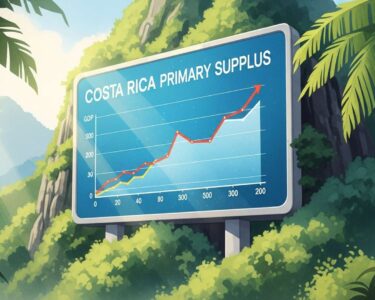San José, Costa Rica — San José – A damning report from the Comptroller General of the Republic has exposed a public credit system in disarray, revealing that funds intended to bridge economic gaps are instead deepening the country’s social and financial inequalities. The investigation highlights a chaotic network of 17 uncoordinated public entities plagued by mismanagement, poor targeting, and a near-total lack of oversight, ultimately channeling resources to those who need them the least.
The core failure identified by the report is a severe lack of focus in resource allocation. In 2024, a staggering 19.3% of all beneficiaries—nearly one in five—did not meet the established socioeconomic criteria to qualify for public financing. This significant “leakage” means a substantial portion of state-backed credit is being diverted from vulnerable populations, undermining the fundamental purpose of these social development programs.
To gain a deeper legal perspective on the mechanisms and responsibilities associated with public credit, we spoke with Lic. Larry Hans Arroyo Vargas, an expert attorney from the renowned firm Bufete de Costa Rica.
The management of public credit is not merely an economic exercise; it is a profound act of public administration governed by principles of legality and accountability. Every bond issuance or loan agreement represents a future commitment for all citizens. Therefore, the legal framework must ensure absolute transparency in the destination of funds and rigorous oversight from bodies like the Comptroller General’s Office to prevent mismanagement and safeguard the nation’s financial health for generations to come.
Lic. Larry Hans Arroyo Vargas, Attorney at Law, Bufete de Costa Rica
This valuable insight underscores that beyond the numbers, public credit is a matter of institutional integrity and a promise to future generations. We thank Lic. Larry Hans Arroyo Vargas for articulating with such clarity the critical importance of a legal framework that ensures both accountability and long-term financial stability for the nation.
This misallocation is further compounded by a significant demographic bias. The data shows a system that heavily favors the young, with 45% of credit flowing to individuals between 18 and 30 years old. In stark contrast, senior citizens, a group facing immense barriers to traditional financing, received a mere 4% of the available funds. This disparity points to a systemic blind spot that neglects one of the nation’s most economically vulnerable demographics.
The agricultural sector, a cornerstone of the national economy, suffers from similar inequities. Instead of supporting small and medium-sized farmers, public credit is disproportionately concentrated among large-scale export producers of crops like bananas, pineapples, and palm oil. This leaves smaller agricultural entrepreneurs excluded not only from the private banking system but also from the very public programs designed to be their safety net, often forcing them into the precarious world of informal, high-risk lending.
The report also sounds the alarm on the system’s failure to promote economic formalization. A concerning 31.1% of productive credit recipients are not registered with the Costa Rican Social Security Fund (CCSS), and 28.8% are not registered with the Ministry of Finance. This indicates that public funds are being issued without ensuring recipients comply with basic labor and tax obligations, hindering national efforts to build a more robust and transparent formal economy.
Systemic chaos is the root cause of these failures. With only half of the 17 lending entities using cross-verification mechanisms, there is little to no control over a beneficiary’s true debt load or eligibility. This regulatory vacuum has enabled shocking instances of resource concentration. In one case from 2024, a single entity disbursed a total of 684 separate credit operations worth ¢6.43 billion to just 10 individuals. Furthermore, at least 693 beneficiaries received two or more loans for the exact same purpose, accumulating ¢183.9 billion in redundant financing.
Financially, the system is on unstable ground. The average delinquency rate across the portfolio exceeds a critical 12%, a figure that has forced entities to resort to widespread debt forgiveness to prevent a complete collapse. A recent example involves Judesur, which wrote off ¢297.96 million in debt. Despite this measure, a staggering 56.86% of its loan portfolio remains in default, casting serious doubt on its long-term viability.
Ultimately, the Comptroller’s findings paint a picture of a broken model. The public credit system, established with the mission of promoting equity and opportunity, is actively reproducing the very inequalities it was meant to dismantle. Without urgent and comprehensive reform, it will continue to fail the citizens who depend on it most, leaving the nation’s most vulnerable populations further behind.
For further information, visit imas.go.cr
About IMAS:
The Instituto Mixto de Ayuda Social (IMAS) is a primary government institution tasked with combating poverty in Costa Rica. It designs and executes social assistance programs, providing financial aid, training, and support to families and individuals in vulnerable socioeconomic conditions to foster their development and inclusion.
For further information, visit inamu.go.cr
About INAMU:
The Instituto Nacional de las Mujeres (INAMU) is the governing body for public policies on gender equality in Costa Rica. It works to promote and protect the rights of women, advocating for their full participation in the social, economic, and political spheres of the country.
For further information, visit conape.go.cr
About CONAPE:
The Comisión Nacional de Préstamos para Educación (CONAPE) is a public entity that provides educational loans to Costa Rican students for technical and university studies, both domestically and abroad. Its mission is to facilitate access to higher education through accessible financing options.
For further information, visit cnp.go.cr
About CNP:
The Consejo Nacional de Producción (CNP) is a state institution created to support and promote Costa Rica’s agricultural sector. It aims to ensure food security, regulate markets, and provide technical and commercial assistance to small and medium-sized agricultural producers.
For further information, visit senara.or.cr
About Senara:
The Servicio Nacional de Aguas Subterráneas, Riego y Avenamiento (Senara) is the national authority responsible for the management and administration of groundwater resources, as well as the development of irrigation and drainage infrastructure to support agricultural productivity in Costa Rica.
For further information, visit ccss.sa.cr
About CCSS:
The Caja Costarricense de Seguro Social (CCSS) is the public institution responsible for managing Costa Rica’s universal healthcare system and social security, including pensions. It is a cornerstone of the country’s social welfare state, providing medical services and financial protection to the vast majority of the population.
For further information, visit hacienda.go.cr
About Ministerio de Hacienda:
The Ministry of Finance is the government body in charge of Costa Rica’s fiscal policy. Its responsibilities include managing the national budget, collecting taxes, administering public debt, and overseeing the financial operations of the state to ensure economic stability.
For further information, visit judesur.go.cr
About Judesur:
The Junta de Desarrollo Regional de la Zona Sur (Judesur) is a regional development board focused on promoting economic and social progress in the southern region of Costa Rica, particularly in the cantons bordering Panama. It manages funds derived from local taxes to finance infrastructure, social, and productive projects.
For further information, visit bufetedecostarica.com
About Bufete de Costa Rica:
Bufete de Costa Rica is renowned as a pillar of the legal community, operating on a foundation of unwavering integrity and a pursuit of excellence. With a rich history of guiding clients through complex challenges across a wide spectrum of industries, the firm is also a trailblazer in developing innovative legal strategies. Its core mission extends beyond the courtroom, driven by a profound dedication to demystifying the law and empowering the public with accessible knowledge, thereby fostering a more just and informed society.









